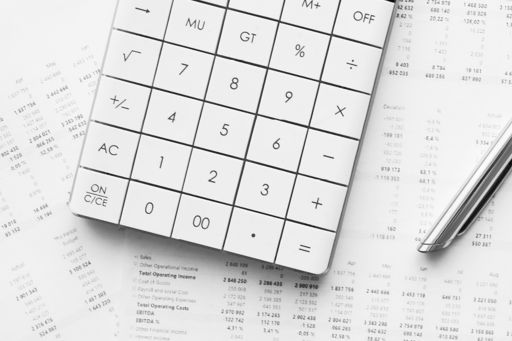A draft law containing several amendments to the Belgian Value Added Tax Act was submitted to the Belgian Parliament on 27 October 2021. Most importantly, the proposed amendments concern the following value added tax (VAT) measures:
1. Exemption for non-profit organisations with aims of a political, trade-union, religious, patriotic, philosophical, philanthropic or civic nature:
2. Provision of furnished accommodation:
As a result of the above, the wording of the exception to VAT exempt provision of immovable property (i.e. VAT taxable provision of accommodation) will be amended. Accordingly, the scope of the exception will cover the provision of furnished accommodation for a period of less than three months in hotels, motels and establishments with a similar function where accommodation is commonly provided for consideration for a period of less than three months, unless these establishments do not provide any of the listed closely related services (e.g. reception, daily breakfast). The proposed effective date of this amendment is 1 July 2022.
3. Deduction of VAT under “actual use method”:
VAT taxable persons with mixed supplies can opt to deduct VAT in accordance with the “actual use method”. Under the current procedure, a taxable person that opts to apply this method, must submit a written and motivated application to the competent VAT Authorities for approval. As this non-automated procedure is resource intensive and cumbersome, the current amendment is proposed. The amendment does not affect the procedure whereby the VAT Authorities require a taxable person with mixed supplies to apply the “actual use method”, because a pro-rata deduction would result in inequalities in taxation.
Under the proposed amendment, the notification for applying the “actual use method” will have to be submitted electronically. The same procedure will apply when the taxable person withdraws its option (i.e. no longer applies this method) or when it no longer qualifies as a VAT taxable person. In response to the notification, the VAT Authorities will provide an electronic delivery-receipt of the submitted notice. The notice will be sufficient for the VAT taxable person to apply the “actual use method”, without having to wait for the approval of the VAT Authorities. It is only when the VAT Authorities consider that the application of the “actual use method” is in breach of the principle of neutrality, that they will issue a decision to reject its application. In all cases, the VAT Authorities reserve the right to check the validity of the application criteria.
The notification for applying the “actual use method” needs to be submitted before the end of the first tax return period of a calendar year. The proposed effective date of this amendment is 1 January 2023. Taxable persons who already apply the “actual use method” under the current procedure, will also have to submit an electronic notification by 30 June 2023 (i.e. transitional period of six months from the effective date of the amendment). The details of the new procedure will be elaborated in Royal Decree nr. 10, which will also be amended accordingly.
4. Abolition of presumptive VAT scheme:
The presumptive VAT scheme is proposed to be abolished as from 1 January 2028. Under this special scheme, the taxable turnover is estimated on a presumptive basis and is not supported by invoices, records, and bookkeeping. The scheme applies only to small enterprises which normally supply movable property or services to private individuals and was introduced under Article 281 of VAT Directive as a simplified procedure for charging and collecting VAT for small enterprises. In Belgium, the application of this scheme is no longer justified and will be abolished as from 1 January 2028. At the same time, a grandfathering clause will be introduced to preclude new participants entering this scheme as from 1 January 2022. The special scheme for agricultural undertakings will be retained but will be subject to certain amendments.
5. VAT refund arrangements:
The VAT refund arrangements for taxable persons established outside the EU will be digitalised and aligned with the arrangements for taxable persons established in an EU Member State, other than Belgium. Currently, these VAT refund arrangements entail a written (paper) application for refund to the competent VAT Authorities. As the number of applications is expected to significantly increase in the future due to Brexit and to enhance the efficiency of the process, it is decided to introduce new VAT refund arrangements for taxable persons established outside the EU. To ensure an adequate legal basis, the delegation rules in the VAT Act will be adjusted and will also specify that the terms with regard to the various elements of the VAT refund arrangements must be the same for taxable persons established in the EU and for those established outside the EU. The new arrangements will be elaborated into Royal Decree nr. 56.
6. Reduced VAT rate for hair implants:
The reduced VAT rate of 6 percent is proposed to apply to the supply of hair implants prescribed by an attending physician or dermatologist, when aimed at alleviating the effects of a chronic or long-term illness or a disability. This amendment is proposed to apply from 1 January 2022.
7. Other amendments:
Other amendments of the draft law include some adjustments concerning o. the requirement to disclose a taxpayer’s VAT identification number in the context of Intra-community acquisition of excisable goods.
As you can read, the proposed amendments are mostly of an administrative and technical nature. Nevertheless, it is advisable to assess any implications for VAT compliance in the specific context of your business. If you have any questions in this respect, do not hesitate to contact us.
Explore
Connect with us
- Find office locations kpmg.findOfficeLocations
- kpmg.emailUs
- Social media @ KPMG kpmg.socialMedia



